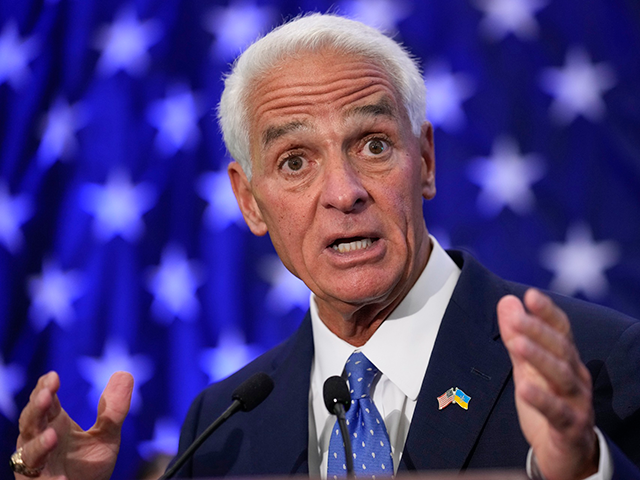Rep. Charlie Crist (D-FL), the Democrat challenging Gov. Ron DeSantis (R) in Florida’s upcoming gubernatorial election, suggested this week that hurricane response must include addressing climate change as he seemingly blamed the size and intensity of recent storms on the phenomenon.
“These storms are going to continue to come, but we also need to address climate change for crying out loud,” Crist said during a recent appearance on MSNBC, seemingly blaming the size and intensity of Hurricane Ian on climate change.
“They’re getting bigger. They’re getting stronger. You know the size of this storm, you could have put three Hurricane Charleys, which hit the same part of Florida, inside the eye of Ian. I mean, so there’s proof positive that we need to address climate change,” he said.
“We need to have better preparation when these storms start coming our way. We need to be on watch. Prepared. Utilize the funds that are in the current budget for structural soundness of these homes so that a catastrophe to this degree doesn’t happen again,” the Democrat added:
Crist is hardly the only Democrat to blame hurricanes on climate change, as failed presidential candidate Sen. Amy Klobuchar (D-MN) made a similar assertion last week, generating mockery across social media.
During an appearance on MSNBC’s Morning Joe, Klobuchar bragged of Democrats doing “something about climate change for the first time in decades.”
“That’s why we’ve got to win this, as that hurricane bears down on Florida. We got a win in the midterms,” she added:
Her response generated significant mockery as many pointed out that Florida has experienced hurricanes throughout recorded history.
Indeed, hundreds of hurricanes have hit the U.S. coast throughout history, but the U.S. has only regularly recorded the extreme weather events for about the last 171 years, as records trace back to 1851. Regardless, from 1851 to current day, hundreds have smashed into U.S. coastlines. Even TIME recognized this, citing data from the National Oceanic and Atmospheric Administration (NOAA):
Data from the National Oceanic and Atmospheric Administration (NOAA) shows that there have been more than 300 hurricanes that have directly hit the U.S. coastline since 1851, of which more than 80% of those hit just three states — Florida, Texas, and Louisiana.
While Hurricane Ian will certainly go down in history as an extremely devastating storm, it is hardly the first, despite the left’s suggestions otherwise.
For example, NOAA identifies the 1935 “Labor Day hurricane” as a record-setting storm, with the lowest central pressure at the time of its U.S. landfall on the Florida Keys.
Hurricane Katrina in 2005 caused the highest storm surge recorded, and the Galveston Texas Hurricane of 1900 — 122 years ago — is recorded as the deadliest hurricane hitting the U.S. specifically, as the Category 4 storm caused between 8,000 and 12,000 deaths, per NOAA data.
It remains unclear what specific policy Democrat politicians believe would actually alter extreme weather, lessening the size, intensity, and frequency of hurricanes.

COMMENTS
Please let us know if you're having issues with commenting.